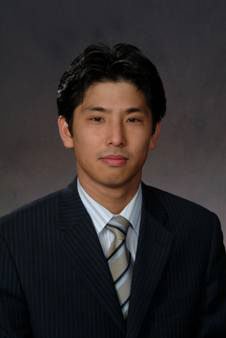Aug 18 2009
Dr. Arum Han, assistant professor in the Department of Electrical and Computer Engineering at Texas A+M University, and Dr. Paul de Figueiredo (PI) from the plant pathology and microbiology department have received a grant from the National Science Foundation (NSF) to develop a microbial fuel cell (MFC) array for bioenergy research.
 Dr. Arum Han
Dr. Arum Han
Han will develop a microfabricated MFC array, a compact and user-friendly platform for the identification and characterization of microbes capable of direct electricity generation.
Microbial fuel cells (MFCs) are remarkable “green energy” devices that exploit microbes to generate electricity from organic compounds. MFCs have generated significant excitement in the bioenergy community because of their potential for powering diverse technologies, including wastewater treatment and bioremediation devices, autonomous sensors for long-term operations in low accessibility regions, mobile robot/sensor platforms, microscopic drug-delivery systems and renewable energy systems.
MFC devices currently being used and studied do not generate sufficient power to support widespread and cost-effective applications so research has focused on strategies to enhance the power output of the MFC devices, including exploring more electrochemically active microbes to expand the few already known electricigen families. However, most of the MFC devices are not compatible with high throughput screening for finding microbes with higher electricity generation capabilities.
The MFC array being developed in the Han and de Figueiredo labs has 24-96 miniaturized MFCs on a single chip format and enables direct and parallel comparisons of microbial electricity generation. The team’s recent paper, “Microfabricated Microbial Fuel Cell Arrays Reveal Electrochemically Active Microbes,” appeared in the August issue of the journal PLoS ONE.
In this work they took environmental samples from the Brazos River and Lake Somerville in Texas, screened the environmental isolates using the 24-well MFC array for electricity generation and found an environmental microbe showing 2.3-fold increased power generation compared to the reference strain Shewanella oneidensis MR-1. The team is currently working on a 96-well MFC array and expects to use it for high throughput screening of environmental microbes or genetically modified microbes, or finding optimum operation conditions for maximum power generation. Just as high throughput microarrays (e.g. DNA microarray, protein microarray) transformed the field of biology and medical science, the team expects that such MFC arrays can greatly accelerate research in the bioenergy field.
Han, director of the NanoBio Systems Lab and an expert in nano/micro technologies for bio/medical applications, joined the biomedical area of the department in August 2005. He received his bachelor’s degree from the Seoul National University (Korea) in 1997 and his master’s degree from the University of Cincinnati in 2000. In August 2005, he received his Ph.D. degree in electrical engineering from the Georgia Institute of Technology.
Han’s research interests lie in the development of miniaturized systems for cellular and molecular analysis using micro and nano fabrication technologies. His research area includes Lab-on-a-Chip (µTAS), BioMEMS, NanoBio Systems, Micro and Nano Fluidic Systems and Bioenergy.